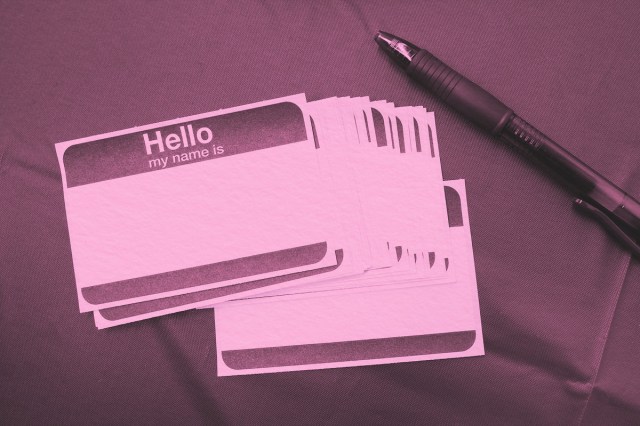
Some surnames say a lot about a family’s history without any further explanation — consider Schwarzenegger, Obama, or even Boyardee. But even common last names can hold a lot of significance and provide a glimpse into someone’s heritage. Smith — the most common last name in the United States — is shared by more than 2 million Americans, yet it holds an etymological clue to understanding how those people might connect to their ancestors. Let’s look at what some common last names have to say about history.
Any surname that ends in “-son” or “-sen” has a potential connection to Vikings, according to a researcher from the Centre of Nordic Studies. Vikings didn’t have family names, but they did have a patronymic system in which children were named after their father. So, for example, a father named John may have named his son Johnson (John’s son). According to the same research, any English surname with personal characteristics (Goodman, Longfellow, etc.) also likely possesses a Viking connection. The same goes for the common last names Roger and Rogers, which come from the Old English name Hrothgar, meaning “famous spear.” That name stems from the Old Norse name Hroarr, which was a popular moniker throughout Scandinavia.
The most popular surname in English-speaking regions is Smith, with about 2.3 million Smiths in the U.S. (just shy of 1% of the population). This last name was originally used to designate someone with a specific smithing (metalworking) occupation. The name originated in England, where there were Smiths in every village working on a variety of trades. In addition to the fairly well-known occupations of blacksmith and locksmith, there might have been a gold or silversmith, a whitesmith (working with tin), a coppersmith, a locksmith, a gunsmith, a blade or swordsmith, an armor or shieldsmith, and a coopersmith (making barrels and casks). With so many smithing professions, you can see how Smith has lasted in popularity.
Many other English surnames also have to do with professions. The name Wright, for example, comes from those who were skilled manufacturers of wooden objects; the surname Fletcher originated among those who made arrows; and the last name Ward comes from anyone who served as a watchman.
Another common (and long-established) method for selecting a surname has to do with a person’s place of origin. Many surnames are simply copies of the region from which a family hailed — for example, Bedford or Pickering. There are also English last names that stem from other countries, such as Fleming (from the Flemish region of modern Belgium) or Moore (from Morocco). Literal landscape features provide inspiration as well, such as in the case of Hill or Woods. These may have been defining features of your ancestors’ hometown.
The most popular surname in the world is Chinese in origin: Wang, a name that boasts a historic connection to ancient royalty. Wang — which means “king” in Mandarin — became popular after many Chinese kingdoms were destroyed by the first Qin dynasty emperor in the third century BCE. Royal families all changed their name to Wang en masse to protect their individual identities, so there were too many Wangs for the new regime to target any specific royal family.
This is just the tip of the proverbial iceberg when it comes to the history behind popular last names. There are an estimated 11 million unique surnames in the world today, making it an impossibility to trace the etymology of each here. But for anyone who’s curious about their family history, follow some of the etymological examples above and you may learn a thing or two about your ancestors.

















